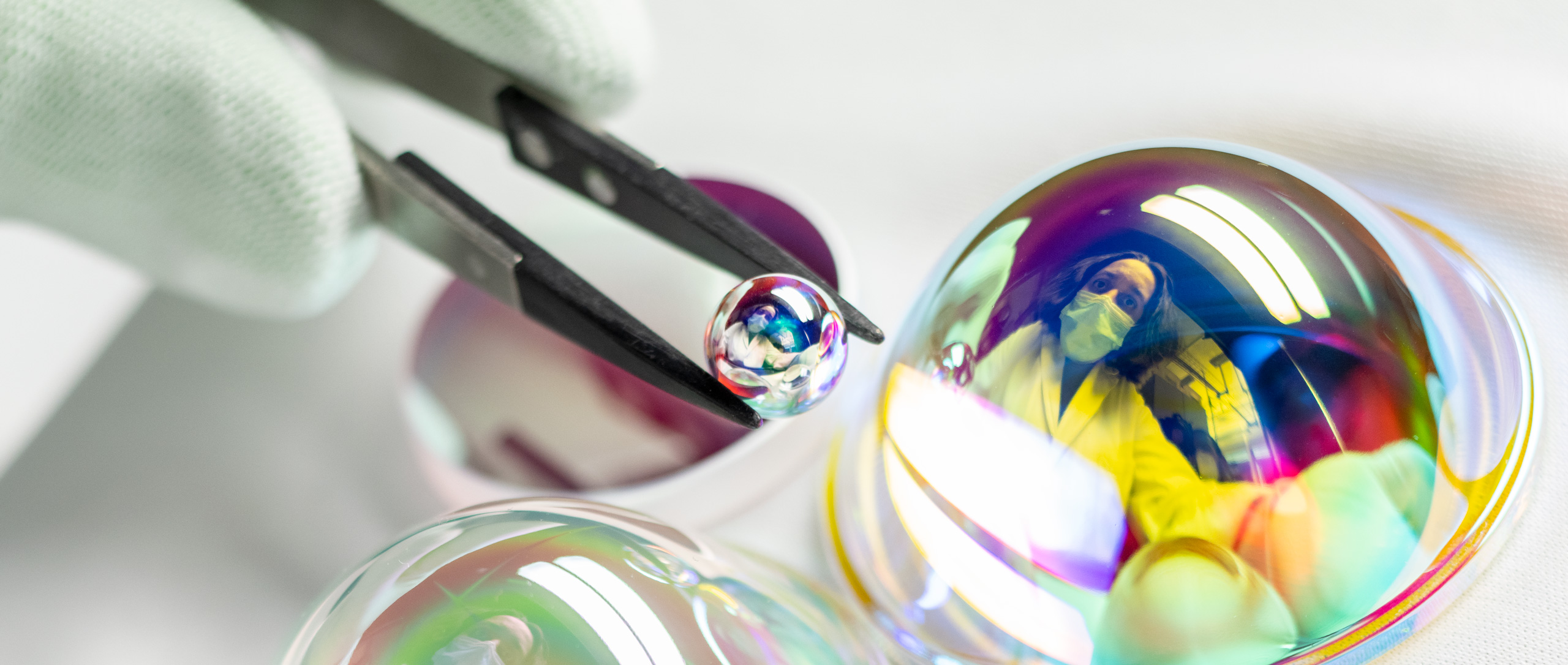Stephanie Hesse-Ertelt
Fraunhofer Research Manager & Deputy Head of Department "Strategy, Organization, Communication", Strategic Initiatives & Business Development
Please tell us something about your area of responsibility.
I mainly acquire and coordinate large-scale interdisciplinary projects with many external partners at state, federal and EU level. I am also the Fraunhofer IOF's contact person for the Aviation & Space Alliance and hold other challenging internal institute positions.
Research manager, that sounds like a versatile job. Now you have been at our institute for several years. How did you come to Fraunhofer IOF back then?
I first studied physics at the Friedrich-Schiller-University Jena and then started my PhD at the Institute of Optics & Quantum Electronics. During my PhD, I worked on a topic at the interface of high-frequency spectroscopy, polymer, and biochemistry. In cooperation with various institutes, I also worked in areas initially unrelated to the subject and spent a period abroad in Japan. Since there was a restructuring in the institute at that time, which made a doctorate and further employment as originally planned no longer possible, I switched to organic and macromolecular chemistry via a detour. This allowed me to complete my doctorate on my chosen topic and to get to know many new aspects in the field of (bio)polymer chemistry. I then stayed in this topic area for a few years and worked as a research associate at the Polysaccharide Research Competence Center. In June 2012, I joined Fraunhofer IOF as a scientific officer. Thus, for the first time, I also came closer professionally to my interest in astronomy and optical space applications.
What did you take away for yourself from this intensive time in research?
There have been many exciting experiences in my career. There have also been moments when I thought I wasn't going anywhere. However, something great has always come out of i - like my stay in Japan, where I was able to develop not only professionally but also personally and get to know the country, its people, and culture.
What else motivates you?
My work feels like a hobby and opens up numerous possibilities. I'm motivated by the new things, the opportunities that present themselves and the possible applications. The results are simply exciting.
What are your personal goals for the future?
II am very happy with the current situation, with my role and the work in a research institute, and I am looking forward to further responsible tasks with ever new topics. If it comes up, I would like to be shot into space sometime.
An extraordinary goal - but not impossible. And what do you wish for the future of women in photonics?
I wish that more young women could get excited about science. At best, the spark ignites when they are still at school. Teachers play an important role here, because they can show young people the possibilities, provide advice and support, inspire them and strengthen their existing interest.
What message would you like to give to young female scientists?
Be courageous and interested, just keep going, a path will be found. Be open, however, to turns and detours. These can be valuable experiences.
